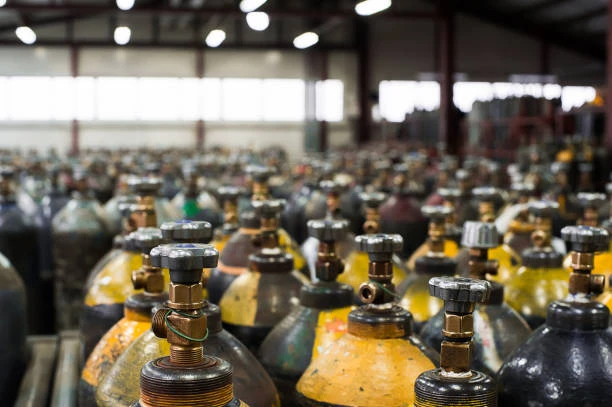The hydrogen valve market is gaining significant attention as the world transitions toward cleaner energy solutions. As industries and governments increasingly look to hydrogen as a sustainable alternative to traditional fossil fuels, the demand for reliable and efficient hydrogen valves is growing. This article explores the latest trends, opportunities, and the future outlook of the hydrogen valve market.
What is a Hydrogen Valve?
A hydrogen valve is a specialized device important to control the flow, pressure, and direction of hydrogen gas within a pipeline or storage system. Hydrogen is a highly flammable and reactive gas, which makes the need for robust and secure valves essential for the safety and efficiency of hydrogen-related infrastructure. Hydrogen valves are useful in various applications, from hydrogen fuel cells to industrial hydrogen production and storage facilities.
Given the unique properties of hydrogen, such as its low molecular weight and high diffusivity, valves used in hydrogen systems must meet stringent standards for sealing, durability, and compatibility with the gas. These valves come in a range of types, including ball valves, gate valves, check valves, and pressure relief valves, each designed to handle specific demands in hydrogen infrastructure.
Market Trends in the Hydrogen Valve Industry
1. Growth in Hydrogen Economy
The global push toward decarbonization is driving the growth of the hydrogen economy. Governments and corporations are increasingly turning to hydrogen as a clean energy solution, especially for sectors like transportation, manufacturing, and power generation. According to the International Energy Agency (IEA), hydrogen is expected to contribute significantly to global energy systems by 2050, with applications ranging from fuel cells in electric vehicles to hydrogen-powered industrial processes.
This growing demand for hydrogen technology has a direct impact on the hydrogen valve market. As more infrastructure is developed to produce, store, and transport hydrogen, the need for high-quality, reliable valves becomes more critical.
2. Technological Advancements
The hydrogen valve market is also experiencing a wave of technological innovation. Advances in materials science, valve design, and sealing technologies are improving the performance and safety of hydrogen valves. For instance, valves that can withstand extreme pressures, temperatures, and the corrosive nature of hydrogen are being developed to ensure the safe handling of hydrogen gas in various applications.
Further, smart valves, which integrate sensors and control systems, are becoming more common. These valves offer real-time monitoring of the hydrogen flow, ensuring that any potential leaks, fluctuations in pressure, or other issues are useful immediately, thus enhancing safety and system reliability.
3. Safety Standards and Regulations
Safety remains a top priority when it comes to handling hydrogen. As hydrogen technology continues to scale, new regulations and safety standards are being introduced globally to ensure that valves and other components meet the highest safety standards. These standards cover areas such as pressure and temperature ratings, sealing efficiency, and material compatibility.
For instance, the American Society of Mechanical Engineers (ASME) and the European Union have developed specific guidelines and certifications for hydrogen valves. These regulations are important for manufacturers and end-users to guarantee that valves are important to withstand the harsh conditions of hydrogen applications while maintaining the highest safety levels.

Opportunities in the Hydrogen Valve Market
1. Expanding Hydrogen Infrastructure
The ongoing development of hydrogen infrastructure presents significant opportunities for the hydrogen valve market. With governments investing in hydrogen fueling stations, storage facilities, and transportation pipelines, there is a growing demand for reliable and specialized valves. As the infrastructure expands, it will require valves that can handle high-pressure hydrogen and ensure leak-proof operations, making them integral to the success of hydrogen adoption.
2. Hydrogen in Industrial Applications
Hydrogen is not just a fuel for transportation but is also being useful in various industrial processes. Industries like chemicals, steel manufacturing, and petroleum refining are increasingly adopting hydrogen as a cleaner energy source. This trend opens up additional opportunities for hydrogen valve manufacturers, who can supply valves to handle the hydrogen flow in these processes.
Additionally, the growing adoption of hydrogen in power plants, both for electricity generation and as a backup fuel, is expanding the potential market for hydrogen valves. In power generation, hydrogen can be useful in gas turbines or combined with carbon capture technologies, requiring specialized valves to regulate the flow and ensure optimal performance.
3. Emerging Markets
As hydrogen technology becomes more affordable and widespread, emerging markets such as Asia-Pacific, the Middle East, and parts of Africa are starting to embrace hydrogen as a key part of their energy strategy. Countries in these regions are investing heavily in green energy initiatives, making it a crucial area for growth in the hydrogen valve market. Manufacturers who can navigate these new markets and provide cost-effective, high-performance hydrogen valves will be well-positioned for future success.
Challenges Facing the Hydrogen Valve Market
1. High Cost of Technology
One of the key challenges facing the hydrogen valve market is the high cost associated with advance hydrogen valve technologies. The materials used to construct valves that can withstand the unique demands of hydrogen are often expensive, and the production processes require highly specialized manufacturing techniques. While the costs are important to come down over time as technology matures and economies of scale are realized, high initial costs remain a barrier to widespread adoption.
2. Supply Chain Limitations
The hydrogen valve market also faces challenges related to supply chain limitations. As the demand for hydrogen valves rises, manufacturers may struggle to keep up with production demands, particularly as high-quality materials and components are necessary for each valve. Disruptions in the global supply chain, such as those caused by geopolitical tensions or natural disasters, could further complicate matters.
3. Hydrogen Storage and Transportation Concerns
Although the hydrogen economy is growing, there are still significant challenges related to hydrogen storage and transportation. Hydrogen is a highly volatile gas, and safely storing and transporting it requires high-pressure tanks, pipelines, and specialized valves. This introduces a level of complexity to the design and manufacturing of hydrogen valves. As they must be capable of withstanding high pressures while remaining leak-proof.
Future Outlook of the Hydrogen Valve Market
The future of the hydrogen valve market looks promising, with several key factors driving growth. As the global transition to cleaner energy sources accelerates, the role of hydrogen in industries and energy systems is becoming increasingly important. The need for advanced, durable, and safe hydrogen valves will continue to rise, spurring innovation and investment in the sector.
Technological advancements in valve design, materials, and control systems will make hydrogen valves more efficient and cost-effective, opening up new opportunities across different sectors. Additionally, as regulatory frameworks and safety standards evolve to support hydrogen adoption. The market will likely see increased demand from regions that are heavily investing in hydrogen infrastructure.
With emerging markets and new applications for hydrogen technology, there is tremendous potential for hydrogen valve manufacturers to grow. By focusing on improving performance, safety, and cost-effectiveness, companies can capitalize on the expanding hydrogen economy.
Conclusion
The hydrogen valve market is important for significant growth as the world increasingly turns to hydrogen as a clean energy alternative. With advancements in technology, a growing hydrogen infrastructure, and increasing demand across industrial sectors, the market for hydrogen valves is expanding rapidly. However, manufacturers must overcome challenges such as high costs and supply chain limitations to fully realize the potential of this market. Looking ahead, the future of the hydrogen valve market is bright, with ample opportunities for innovation and growth.
Frequently Asked Questions (FAQ)
1. What is a hydrogen valve?
A hydrogen valve is a device useful to control the flow of hydrogen gas in pipelines, storage systems, and other infrastructure. These valves are important to handle the unique properties of hydrogen. Such as its flammability and low molecular weight, while ensuring safety and efficiency.
2. What are the key applications of hydrogen valves?
Hydrogen valves are useful in various applications, including hydrogen fueling stations, hydrogen fuel cells, industrial hydrogen production, and transportation pipelines. They are essential in industries such as energy, chemicals, and manufacturing.
3. How are hydrogen valves different from regular valves?
Hydrogen valves are specially important to handle the unique characteristics of hydrogen gas, such as its high diffusivity and reactivity. They are built with advanced materials and sealing technologies to prevent leaks and ensure safe operation under high pressure and temperature conditions.
4. What are the main challenges in the hydrogen valve market?
The hydrogen valve market faces challenges such as high production costs, supply chain limitations. And the complexities of safely storing and transporting hydrogen gas. These factors can increase the cost of valves and hinder the growth of the market in the short term.
5. What is the future of the hydrogen valve market?
The future of the hydrogen valve market looks promising, with growth driven by the expanding hydrogen infrastructure, technological advancements, and increasing demand for clean energy solutions. As hydrogen becomes more integrated into various industries, the demand for reliable and efficient hydrogen valves will continue to rise.


















